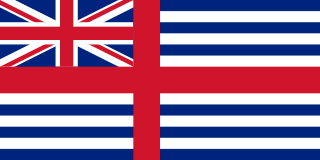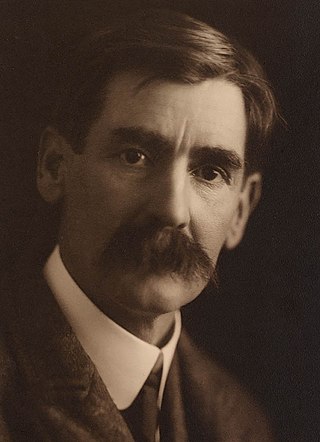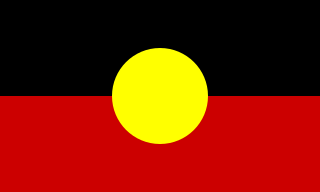
Peter Philip Carey AO is an Australian novelist. Carey has won the Miles Franklin Award three times and is frequently named as Australia's next contender for the Nobel Prize in Literature. Carey is one of only five writers to have won the Booker Prize twice—the others being J. G. Farrell, J. M. Coetzee, Hilary Mantel and Margaret Atwood. Carey won his first Booker Prize in 1988 for Oscar and Lucinda, and won for the second time in 2001 with True History of the Kelly Gang. In May 2008 he was nominated for the Best of the Booker Prize.
A soap opera, or soap for short, is a typically long-running radio or television serial, frequently characterized by melodrama, ensemble casts, and sentimentality. The term "soap opera" originated from radio dramas originally being sponsored by soap manufacturers. The term was preceded by "horse opera", a derogatory term for low-budget Westerns.

Van Diemen's Land was the colonial name of the island of Tasmania used by the British during the European exploration of Australia in the 19th century. A British settlement was established in Van Diemen's Land in 1803 before it became a separate colony in 1825. Its penal colonies became notorious destinations for the transportation of convicts due to the harsh environment, isolation and reputation for being inescapable. Macquarie Harbour and Port Arthur are among the most well-known penal settlements on the island.

Thomas Michael Keneally, AO is an Australian novelist, playwright, essayist, and actor. He is best known for his non-fiction novel Schindler's Ark, the story of Oskar Schindler's rescue of Jews during the Holocaust, which won the Booker Prize in 1982. The book would later be adapted into Steven Spielberg's 1993 film Schindler's List, which won the Academy Award for Best Picture.

Andrew Barton "Banjo" Paterson, was an Australian bush poet, journalist and author. He wrote many ballads and poems about Australian life, focusing particularly on the rural and outback areas, including the district around Binalong, New South Wales, where he spent much of his childhood. Paterson's more notable poems include "Clancy of the Overflow" (1889), "The Man from Snowy River" (1890) and "Waltzing Matilda" (1895), regarded widely as Australia's unofficial national anthem.

The Dreaming, also referred to as Dreamtime, is a term devised by early anthropologists to refer to a religio-cultural worldview attributed to Australian Aboriginal beliefs. It was originally used by Francis Gillen, quickly adopted by his colleague Baldwin Spencer and thereafter popularised by A. P. Elkin, who, however, later revised his views.

Henry Archibald Hertzberg Lawson was an Australian writer and bush poet. Along with his contemporary Banjo Paterson, Lawson is among the best-known Australian poets and fiction writers of the colonial period and is often called Australia's "greatest short story writer".

The Australian War Memorial is Australia's national memorial to the members of its armed forces and supporting organisations who have died or participated in wars involving the Commonwealth of Australia and some conflicts involving personnel from the Australian colonies prior to Federation. Opened in 1941, the memorial includes an extensive national military museum.

Ronald Belford "Bon" Scott was an Australian singer and songwriter. He was the lead vocalist and lyricist of the hard rock band AC/DC from 1974 until his death in 1980.

Quolls are carnivorous marsupials native to Australia and New Guinea. They are primarily nocturnal and spend most of the day in a den. Of the six species of quoll, four are found in Australia and two in New Guinea. Another two species are known from fossil remains in Pliocene and Pleistocene deposits in Queensland. Genetic evidence indicates that quolls evolved around 15 million years ago in the Miocene, and that the ancestors of the six species had all diverged by around four million years ago. The six species vary in weight and size, from 300 g (11 oz) to 7 kg (15 lb). They have brown or black fur and pink noses. They are largely solitary, but come together for a few social interactions such as mating which occurs during the winter season. A female gives birth to up to 30 pups, but the number that can be raised to adulthood is limited by the number of teats (6–7). They have a life span of 1–5 years.

Torres Strait Islanders are the Indigenous Melanesian people of the Torres Strait Islands, which are part of the state of Queensland, Australia. Ethnically distinct from the Aboriginal people of the rest of Australia, they are often grouped with them as Indigenous Australians. Today there are many more Torres Strait Islander people living in mainland Australia than on the Islands.

The Courier-Mail is an Australian newspaper published in Brisbane. Owned by News Corp Australia, it is published daily from Monday to Saturday in tabloid format. Its editorial offices are located at Bowen Hills, in Brisbane's inner northern suburbs, and it is printed at Murarrie, in Brisbane's eastern suburbs. It is available for purchase throughout Queensland, most regions of Northern New South Wales and parts of the Northern Territory.

The Collins-class submarines are Australian-built diesel-electric submarines operated by the Royal Australian Navy (RAN). The Collins class takes its name from Australian Vice Admiral John Augustine Collins; each of the six submarines is named after significant RAN personnel who distinguished themselves in action during World War II. The six vessels were the first submarines built in Australia, prompting widespread improvements in Australian industry and delivering a sovereign sustainment/maintenance capability.

The Australian and New Zealand Army Corps (ANZAC) was originally a First World War army corps of the Mediterranean Expeditionary Force. It was formed in Egypt in December 1914, and operated during the Gallipoli campaign. General William Birdwood commanded the corps, which primarily consisted of troops from the First Australian Imperial Force and 1st New Zealand Expeditionary Force, although there were also British and Indian units attached at times throughout the campaign. The corps disbanded in 1916, following the Allied evacuation of the Gallipoli peninsula and the formation of I ANZAC Corps and II ANZAC Corps. The corps was reestablished, briefly, in the Second World War during the Battle of Greece in 1941. The term 'ANZAC' has been used since for joint Australian–New Zealand units of different sizes.
Theodor George Henry Strehlow was an Australian anthropologist and linguist. He notably studied the Arrernte Aboriginal Australians and their language in Central Australia.
Australian Story is a national weekly current affairs and documentary style television series which is broadcast on ABC Television. It is produced specifically by the ABC News and Current Affairs Department. The program first aired on 29 May 1996, and since then it has continued to profile various Australian people, typically ones with a diverse background or notable reputation.

John Villiers Farrow, KGCHS was an Australian film director, producer, and screenwriter. Spending a considerable amount of his career in the United States, in 1942 he was nominated for the Academy Award for Best Director for Wake Island, and in 1957 he won the Academy Award for Best Adapted Screenplay for Around the World in Eighty Days. He had seven children by his wife, actress Maureen O'Sullivan, including actress Mia Farrow.

Aboriginal Australians are the various Indigenous peoples of the Australian mainland and many of its islands, such as the peoples of Tasmania, Fraser Island, Hinchinbrook Island, the Tiwi Islands, and Groote Eylandt, but excluding the Torres Strait Islands. The term Indigenous Australians refers to Aboriginal Australians and Torres Strait Islanders collectively. It is generally used when both groups are included in the topic being addressed. Torres Strait Islanders are ethnically and culturally distinct, despite extensive cultural exchange with some of the Aboriginal groups. The Torres Strait Islands are mostly part of Queensland but have a separate governmental status.

Australia, officially the Commonwealth of Australia, is a sovereign country comprising the mainland of the Australian continent, the island of Tasmania, and numerous smaller islands. With an area of 7,617,930 square kilometres (2,941,300 sq mi), Australia is the largest country by area in Oceania and the world's sixth-largest country. Australia is the oldest, flattest, and driest inhabited continent, with the least fertile soils. It is a megadiverse country, and its size gives it a wide variety of landscapes and climates, with deserts in the centre, tropical rainforests in the north-east, and mountain ranges in the south-east.
Australian Aboriginal astronomy is a name given to Aboriginal Australian culture relating to astronomical subjects – such as the Sun and Moon, the stars, planets, and the Milky Way, and their motions on the sky.















